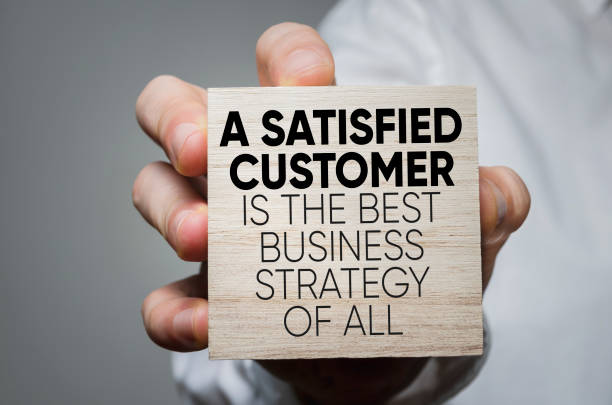1. Small Business Strategies and strategy development
Every Small Business Strategies needs a compelling business plan and strategy to succeed. It is a road map that defines your business goals and outlines how to achieve them. Planning includes market research, competitive analysis, and financial forecasting. For strategy development you should focus on your Unique Selling Proposition (USP), standing out from your business competitors. All this God does on a solid foundation for your business and gives you clear direction.
2. Customer focused approach

A customer-centric approach is integral to driving your business forward. You should understand the needs of your customers and try to give them the best possible experience. For this you should take regular feedback and continuously improve your products or services. Customer satisfaction is repeat business and word-of-mouth marketing for your business, a highly effective and cost-effective marketing strategy.
3. Effective Marketing Strategy
An effective marketing strategy plays an important role in growing your business. You should use a mix of traditional and digital marketing. Traditional marketing includes print ads, flyers, and local events, while digital marketing includes social media, email marketing, and SEO. Must be active on social media platforms like Facebook, Instagram, and LinkedIn and share relevant content. Email marketing allows you to reach your customers directly and let them know about special offers and updates.
4. Innovation and Adaptation
Innovation and adaptability are crucial for your business to survive in a competitive market. You should adopt new trends and technologies and keep updating your products and services regularly. As the market changes and customer preferences change, you must also make changes to your business model. Innovation gives you a lead in the market and adaptability helps you keep up with the changes in the market.
5. Financial management
Financial management is the backbone of any business. You should manage your finances well and keep unnecessary expenses under control. Regular financial audits and bookkeeping can help you monitor your financial health. You must manage your cash flow and maintain emergency funds to keep your business afloat in the event of unforeseen circumstances. Additionally, a profitable investment opportunity Investment opportunities should also be explored.
6. Building a strong team

A strong team is of great help in moving your business forward. You want to hire talented and dedicated employees who can help you achieve your business goals. Employee training and development programs are also essential to keep your team updated and motivated. Teamwork and cooperation should be promoted and a positive work environment should be created. Strong leadership and clear communication also go a long way in building a team.
7. Customer Relationship Management (CRM)
CRM systems help you build strong relationships with your customers. These systems help you track customer interactions, analyze data, and run personalized marketing campaigns. You should try to understand your customers’ preferences and purchase history and provide offers and services accordingly. CRM increases your customer loyalty and builds long-term relationships, which is beneficial for your business.
8. Networking and Partnerships
Networking and partnerships play a vital role in the growth of your business. You may want to attend industry events and conferences to connect with you and promote your business. Strategic partnerships should also be explored that are mutually beneficial to your business. Partnerships can provide you with new market opportunities and have the power to expand the reach of your business. Networking can also provide you with valuable insights and advice that can help you improve your business.
9. Customer feedback and continuous improvement

Take customer feedback seriously and continuously improve your products and services. Regular surveys and feedback forms allow you to get feedback and suggestions from your customers. This way you can find out the weak points of your business and you can make improvements. Continuous improvement makes you competitive in the market and provides a better experience to your customers. Use customer feedback effectively to help you build a loyal customer base.
10. Use of Technology and Automation
Technology and automation make your business processes streamlined and efficient. You should use the latest tools and software that can automate your business operations. Automation allows you to handle time-consuming tasks efficiently and allows your team to focus on important tasks. Adopting technology increases the productivity and profitability of your business. Technologies like cloud computing, CRM systems, and project management tools help you manage your business better.
Conclusion
Adopt a strategy to help your Small Business Strategies thrive in a competitive market. It is important to focus on every aspect and regularly update your business practices. A solid business plan, customer-centric approach, effective marketing, innovation, financial management, strong team, CRM, networking, continuous improvement, and technology adoption can lead your business to success. Your commitment and dedication will help your business achieve long-term success.
